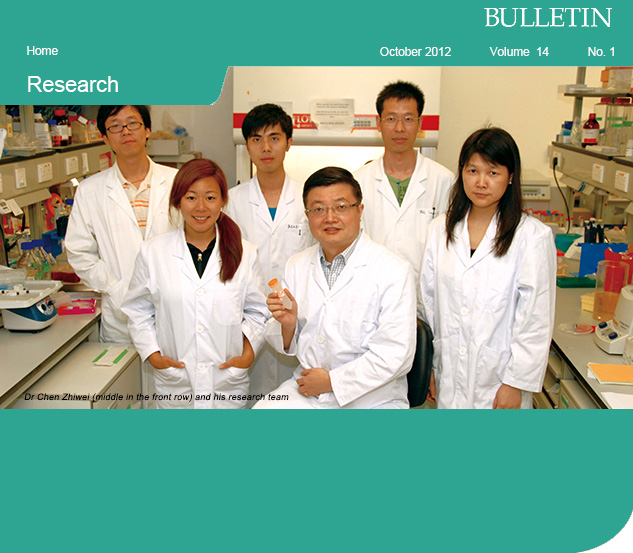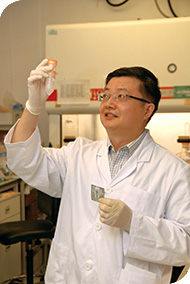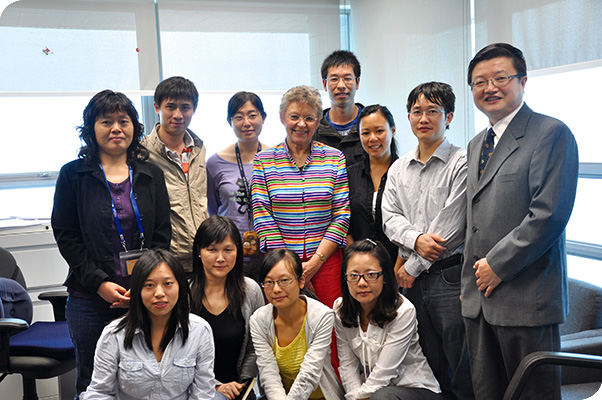| Dogged Determination | |
| HKU’s AIDS Institute marks five years as watchdog against a disease that is still regarded with some indifference in the region. |

|
|
Fujian province is rarely mentioned in the coverage of AIDS in China, unlike Yunnan, Guanxi and Henan where drug use, sexual transmission and blood transfusions have raised infection rates. But if Fujian is not high profile, it may be a harbinger of things to come. The province was the subject of a study by HKU’s AIDS Institute that showed the number of infections doubled (from 528 to 1,129) between 2006–07 and 2008–09 and the prevalence of infection was increasing (from 0.064 per cent to 0.074 per cent). Most significantly, sexual transmission was a major source of the higher numbers, accounting for 71.4 per cent of cases in 2008–09 against only 53.4 per cent in 2006–07. All of those factors indicated the virus was gaining a hold in the general population. “Unprotected heterosexual and homosexual contact is the major mode of HIV transmission in the general population in Fujian,” says the Institute’s Director, Dr Chen Zhiwei. “The rising infection rate in the general population poses a new challenge to national efforts against HIV/AIDS.” Fighting on many fronts The Institute has played a major role in raising the alert about HIV’s creeping spread in China and Hong Kong since it was founded five years ago to study the problem in the region and develop solutions. Apart from the Fujian study, which involved three million samples collected over three years and was published in the Journal of Acquired Immune Deficiency Syndromes, it has tracked the evolution of the ever-changing HIV virus in China and monitored infections in Yunnan and Hong Kong. It has trained Mainland doctors and other researchers, worked with NGOs who deal with HIV/AIDS victims and led research teams in exploring medical treatments and cures. The progress can be slow, given the hidden nature of HIV infection, the dynamic evolution of the virus and the very large palette of China that the Institute is working with. But recently, there has been promising progress. The Fujian study, for one, offers an important guiding tool for targeting prevention. The Institute is also making medical advances. |
|
“Often people don’t think AIDS is a big problem anymore. That’s not true. We don’t have a vaccine. We don’t have a therapeutic cure. We still have a problem.” |
|
| Dr Chen Zhiwei |
|
New route to block transmission
It has recently discovered a new molecular mechanism that is effective in blocking transmission of the virus, in conjunction with Shanghai Targetdrug Co Ltd, Nanjing University and City University of Hong Kong. The mechanism, TD-0680, blocks the ability of a sexually-transmitted form of HIV to bind with CCR5, which is a co-receptor for the virus – in plain language, it reduces the virus’ ability to bind to human cells. The findings, which were published in The Journal of Biological Chemistry, were tested on human and monkey cells, and found to be several to 10 times more effective than the current main inhibitor on the market using multiple assays. “If there is a way to prevent the virus entering the body, then the chance for preventive efficacy will be much better,” Dr Chen says. An even better weapon would be a vaccine and the Institute is working on this, too, with funding mainly from the Mainland government. Progress has been very good and they hope to make an important announcement on this shortly. |
 Dr Chen Zhiwei, Director of AIDS Institute, says the novel CCR5 antagonist (TD-0680) may be formulated into microbicide gels to prevent spread of HIV/AIDS through sexual transmission. |
 Recipient of 2008 Nobel Prize in Physiology and Medicine, Professor Françoise Barré-Sinoussi (fourth from the left in the second row), visited the AIDS Institute and had a nice discussion with students. |
|
More public attention needed In the meantime, they will continue to try to get HIV/AIDS placed higher up the public agenda. “Often people don’t think AIDS is a big problem anymore. That’s not true. We don’t have a vaccine. We don’t have a therapeutic cure. We still have a problem.” “Unfortunately it’s mostly poor people who are infected in both Hong Kong and China. In Fujian 20 per cent of previously unidentified cases didn’t have a job.” Dr Chen would like to see the Hong Kong government in particular provide more moral and financial support to academic research institutions in the fight against the local AIDS epidemic, especially as the number of new HIV infections hit a record 131 in the second quarter of 2012. The Institute was established entirely with funding from the University. The issue will get a higher profile in November when the Institute stages a major international conference on HIV/AIDS to celebrate its fifth anniversary. Dr David Ho, Head of the Aaron Diamond AIDS Research Centre in New York, will address the gathering. The Institute is also working with local and Mainland NGOs to raise awareness. “If we don’t pay careful attention, then certainly we will have a serious problem,” Dr Chen says. |
| Next |